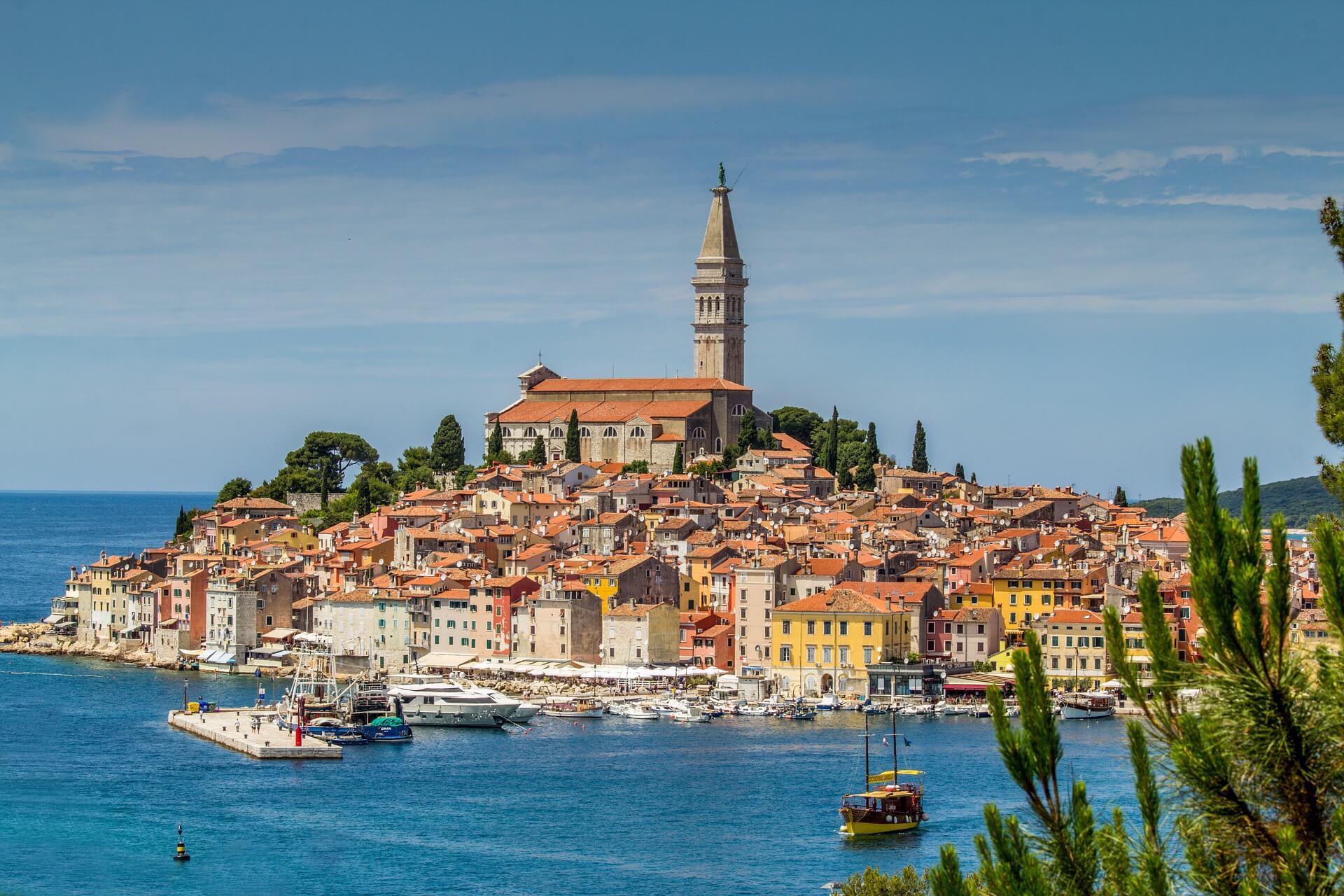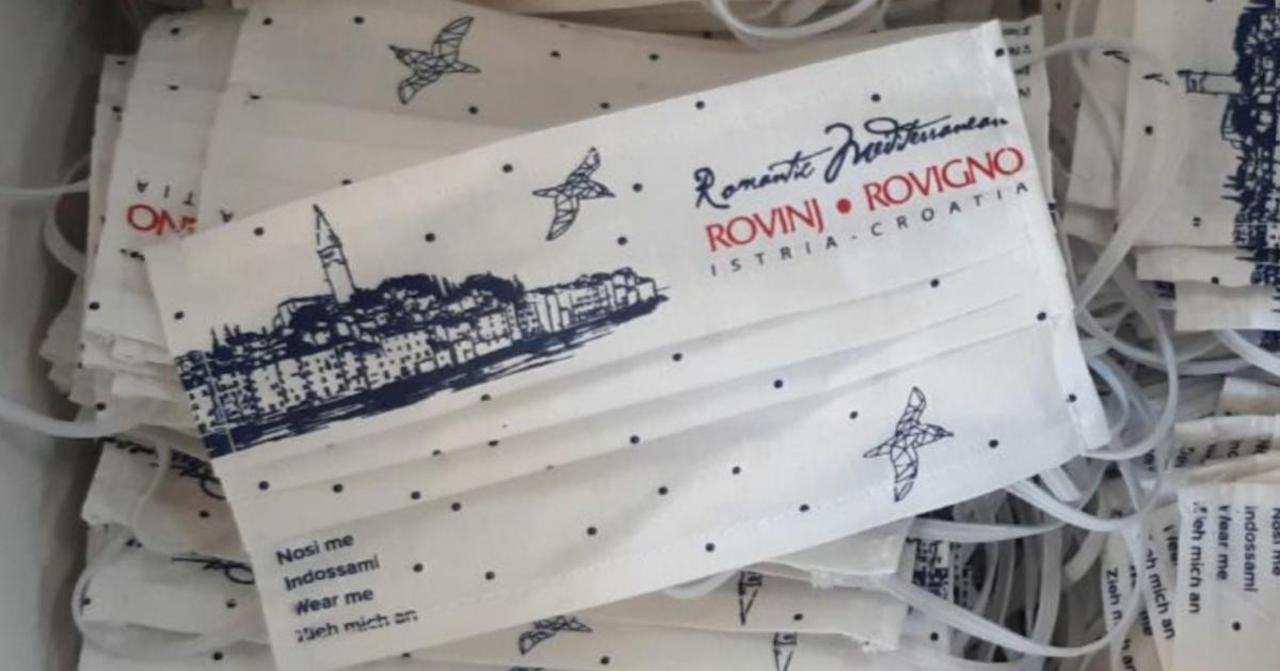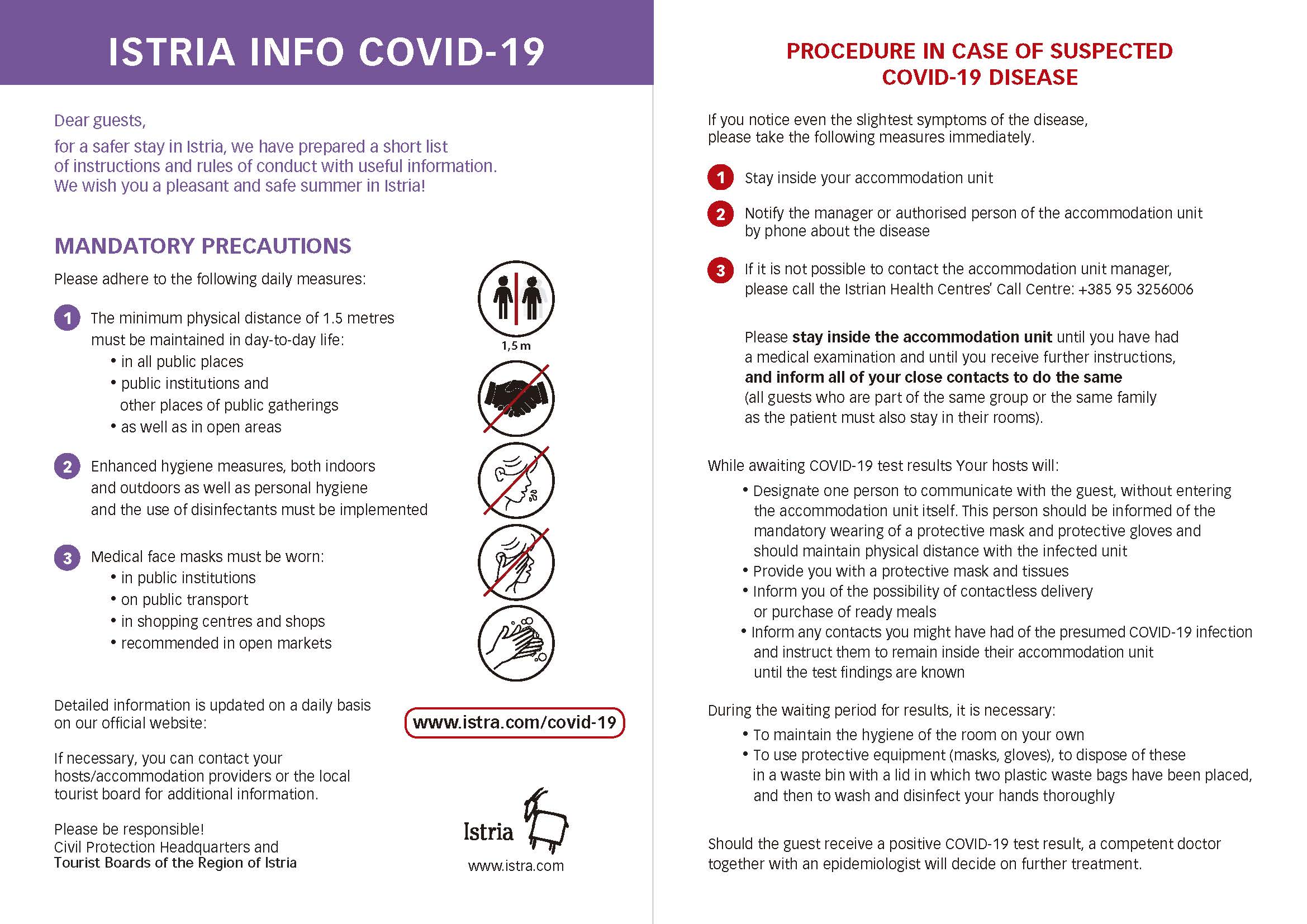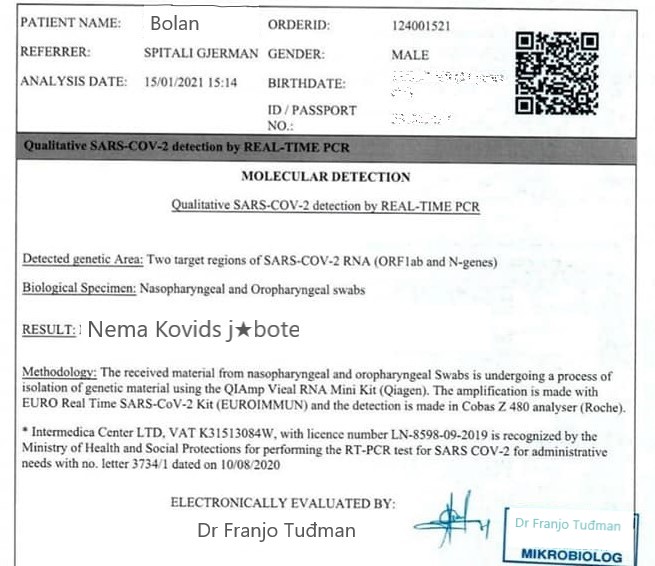Zeljka Karin: 250 Croatian PCR Test Appointments Being Missed Per Day
January the 25th, 2022 - Dr. Zeljka Karin has appealed to Croatian residents to please make sure they call and actually cancel their PCR test appointments as opposed to simply not showing up, as the situation surrounding testing appointments is becoming a severe issue.
As Poslovni Dnevnik writes, despite the fact that Omicron is spreading like wildfire and that many professionals are now wondering whether testing for the presence of the novel coronavirus has any purpose anymore, there are still huge problems with supply and demand when it comes to the ''gold standard'' test - the PCR.
The problem, as they explained from the Dr. Andrija Stampar' Institute of Public Health, are the testing appointments which go unused because the people referred simply don't bother to turn up. On average, there are around 200-250 such cases every single day. There is a similar situation going on in Split, as well.
“The problem is really that people don't bother to let us know that they want to cancel their PCR test appointment, meaning that they go for a quick antigen test instead or just stay at home after a positive antigen result and doesn't bother to cancel their PCR appointment. I'm appealing to all those who aren't going to come for their PCR test appointments to please let us know. We're waiting for about two days for this sort of testing,'' said Dr. Zeljka Karin, the director of the Teaching Institute for Public Health of Split-Dalmatia County for HRT.
"Don't be fooled into believing that this is just Omicron and that it will pass with a milder clinical picture. Omicron creates different clinical outcomes, depending on the person. In addition, we still have the Delta strain circulating and it is still common. Six people died two days ago. You need to know that to us, when people are dying daily, it means that the virus is far from harmless. You have to go and get vaccinated and adhere to the epidemiological measures," Dr Zeljka Karin added.
Rapid antigen tests taken at home are also a measure of protection for many, and some pharmacies sell up to 150 of these tests a day, ending their days with empty drawers.
“Rapid antigen tests are currently the most sought after commodity in pharmacies and very often in the afternoon, especially before closing, the tests actually disappear. Towards the end of last week in some pharmacies, we were told that there were no tests, but this morning we talked to suppliers and those who don't have any today will get them over the first days of next week, so I think there will be no major problems there,'' said Ana Soldo, President of the Croatian Chamber of Pharmacists, adding that rapid antigen tests are reliable and of high quality.
“Rapid antigen tests for self-testing at home are about the same accuracy as those used for professional purposes, they're only in a different form and the instructions have been adapted to non-medically trained people that they can test themselves. So, their accuracy is mostly over 97 - 98% ", added Soldo.
For all you need to know about coronavirus specific to Croatia, make sure to bookmark our dedicated section and select your preferred language if it isn't English.
Croatian Police Discover Over 700 Fake PCR Tests So Far This Year
ZAGREB, 19 July 2021 - So far this year, Croatian police have discovered over 700 forged PCR tests, but no fake EU digital COVID certificates.
By 14 July this year, a total of 703 counterfeit PCR tests have been discovered, mostly in Vukovar-Srijem County (251), Slavonski Brod-Posavina County (134), Istria County (95), and Split-Dalmatia County (64), the Ministry of the Interior said on Monday.
Last week, police found 26 persons, including 13 minors, trying to enter a football stadium in Split with fake PCR tests. In late May, in Primorje-Gorski Kotar County, 26 people were discovered in the process of forging PCR tests and most of them were foreign nationals.
At several border crossing points, PCR tests shown by foreign nationals turned out to be forged. Among the foreigners with forged tests were citizens of Bosnia and Herzegovina, Brazil, the Netherlands, North Macedonia, Austria, Albania, Kosovo, the Czech Republic, Italy, Montenegro, Sweden, the United Kingdom, Germany, Hungary, Serbia, and Slovenia. Croatian citizens are also known to have used forged PCR tests to enter the country or to have the self-isolation order lifted.
Some of the foreign nationals admitted that they found a negative PCR test online and then made an effort to put their own details in it.
The police say that so far they have not encountered any forged EU digital COVID certificates nor do they have any records of their misuse.
For more news about Croatia, click here.
How Much Did Zagreb's Andrija Stampar Institute Make on PCR Tests?
May the 27th, 2021 - Zagreb's Andrija Stampar Institute has been a very popular destination of late, more so since the beginning of the coronavirus pandemic at the start of 2020. While popular, it wasn't for the right reasons and lines and lines of cars full of people waiting to get PCR tests there were a common sight during the pandemic. Just how much did the Institute earn as a result?
PCR tests aren't cheap and that has been an understandable bone of contention for the public not only in Croatia but abroad. The fact that a swab up the nose could possibly cost up to 700 kuna and even more was unthinkable for many, especially in a dire economic situation which seemingly had no end in sight. The Andrija Stampar Institute in Zagreb was performing PCR tests repeatedly throughout pandemic-dominated 2020, and is still doing so. A report revealed just how much money those many, many PCR tests translated into.
As Poslovni Dnevnik writes, if one was to look at the "Statement of income and expenditure, receipts and expenditures" for the period from the 1st of January to the 31st of December 2020, one would notice very high growth indeed in operating income of Andrija Stampar Institute, otherwise the instutition that performed the most PCR tests in all of Croatia, writes Jutarnji list.
Back in 2019, more precisely back when things were normal, the Institute had reported revenues of 96.17 million kuna, while last year they earned a massive 204.6 million kuna, or 2.1 times more. In 2020, the Institute's accountants recorded a total "Surplus operating income" of 49.5 million kuna, which is about 17 times more than was recorded back in 2019. How is it possible that in the midst of an unprecedented crisis and a global pandemic, a public health institution is 17 times more profitable than it was during a normal business year?
Multiple articles came to light last year which warned that the price of PCR tests in the Republic of Croatia is very high when compared to other EU member states. Here in Croatia, the price of PCR tests ranged from 500 to 1500 kuna, while in Germany the prices stood at 460 kuna. Last year, the Andrija Stampar Institute kept their price of a PCR test at around 700 kuna, and they justified that price with the fact that there are high input costs, ie that they purchase extremely high quality PCR tests.
For all you need to know about coronavirus specific to Croatia, including travel, border and quarantine rules, as well as the locations of vaccination points and testing centres across the country, make sure to bookmark our dedicated COVID-19 section and choose your preferred language.
Will Traveling During the Coronavirus Pandemic to Croatia be Problematic? Plan B in Place
April 14, 2021 - With the season approaching, the question on everyone's mind is will traveling during the coronavirus pandemic to Croatia bring problems for tourism in the country?' A light at the end of the tunnel still might be possible.
While many high-reputation magazines regularly praise Croatia as a top destination, this summer, the season will be only as strong as the health situation regarding coronavirus – both in Croatia and abroad, from where the country welcomes as many tourists as possible. Sadly, as Croatian National Radiotelevision (HRT) reports, due to the bad pandemic situation, many European countries, including Croatia, are canceling the travel season.
While, as we reported on TCN, many flights are returning and coming to Croatia, the measures are possibly demotivating travelers.
HRT says Croatia is declared as a highly-risked country in Germany, and returning citizens need to show a negative test that is no older than 48 hours which is a change to previous arrangments when Germans could test after returning home.
„The English planned to allow traveling from May 17 but tour operators and others don't have a big number of reservations to make it profitable so everything is postponed until June 24“, said hotelier Domagoj Tomasović to HRT.
British tourists were indeed expected mid-May, but as Darija Reić, director of the Croatian Tourist Board in London, said on the "Good Morning Croatia show" on HRT, there are still fines for non-essential travel.
„Travelling outside of UK is still illegal if you don't travel for essential reasons which include traveling for business, education or medicinal purposes. Otherwise, it's possible to be fined 5000 pounds“, explained Reić, as noted by Turizmoteka.
Tonči Glavina, state secretary for Tourism ministry, said for HRT that the UK is not alone in sending a message to its citizens to not travel anywhere and went on to say that may not be bad for Croatia.

pixabay
While the UK stands better in the percentage of vaccinated people than Croatia, Croatians are focusing on reaching the green zone by the end of May. Seventy thousand vaccinated workers in the tourist sector are the goal for the country.
„If that doesn't happen until the start of the season, then we need tests and it would be good if tourist board make testing zones and if we co-finance the expenses of testing to our guests“, concluded Tomasović.
The Ministry of Tourism already secured 20 million kuna to co-finance testing for tourists if Croatia doesn't reach the green zone.
PCR tests currently cost 500 kuna; quick antigen test is 150 kuna, and the translations of the results to English is 125 kuna. Twenty tourists were already tested in Zagreb on Tuesday.
Learn more about coronavirus: news and travel in Croatia on our TC page.
For more about travel in Croatia, follow TCN's dedicated page.
Nikolina Brnjac: State Will Cover Part of Testing Costs for Tourists in Croatia
April 10, 2021 - According to the Minister of Tourism and Sports Nikolina Brnjac, the State will cover part of the testing costs for tourists in Croatia.
With a good epidemiological situation, we can expect a higher percentage than last year, said the Minister of Tourism and Sports Nikolina Brnjac for HTV's Dnevnik, answering what percentage we could achieve in the season compared to 2019.
On Friday, it was announced that 70,000 tourism workers would be vaccinated in mid-April. Brnjac told Dnevnik that a survey revealed that about 68,000 tourist workers would like to get vaccinated.
"Tourist employees are in direct contact. It is an epidemiological measure by which we can prevent further outbreaks," said Brnjac.
Germany also put Croatia on the list of high-risk areas. Will it affect tourists?
"First of all, we will look at the epidemiological situation. After that, of course, tourists will look at the vaccination coverage of tourism workers. The segment of the Safe Stay in Croatia project is also important to them, where we have developed all epidemiological standards, protocols, together with the CNIPH, which should be adhered to by all of us in the tourism sector," said Brnjac.
She stated that so far, about 12,000 facilities have received the Safe Stay in Croatia label. Three levels of control have been introduced - one will go from the Ministry, and the other will be professional associations. The third and most important is the guest themselves - the tourist will see how someone behaves and whether they adhere to all measures and protocols, said Brnjac.
"They will see through the QR code in the facility about the protocols are, the standards, whether everyone adheres to them and will be able to send a direct e-mail with their comments, which goes directly to the Ministry, If it is negative, that facility will not get that label," said Brnjac.
When asked about the price of antigen tests at mobile testing points for foreign guests returning to their countries, she could not give a concrete answer, but she said that the state would cover part of the cost.
"The state will cover part of the cost; it will participate in a rather large amount as far as the price of the antigen test is concerned," said Brnjac.
Follow the latest travel updates and COVID-19 news from Croatia HERE.
For more on travel in Croatia, follow TCN's dedicated page.
Rovinj Tourist Board Provides PCR Tests for Guests in Private Accommodation
April 7, 2021 - In order to promote safe tourism during the pandemic, the Rovinj Tourist Board provides PCR tests for guests staying in private accommodation.
As reported by IstraIN.hr, in order to facilitate the stay of guests in Rovinj and make their stay safer, the Rovinj Tourist Board has decided to ease the situation for private renters and guests, since they need a negative PCR test to avoid quarantine to return home.

Credit: Gerald Thurner (Pixabay)
Even if new flight routes are being opened and the frequency of these are increasing as the summer season approaches, many of the tourists traveling to Croatia have to deal with the measures imposed in their own countries upon their return. For instance, tourists from many European countries had to cancel their reservations during last summer season due to the quarantine measures imposed by their governments.
As the world was hit by the third wave of the pandemic, many countries were forced to tighten measures further. Among them are numerous European countries such as Germany, which have declared Istria as a high-risk region, despite the fact that Istria is still among the European regions with the lowest incidence of infection.
On that occasion, the Rovinj Tourist Board has provided testing for guests staying in private accommodation and other smaller facilities. Testing is performed in Maistra hotels, and to register guests will need to contact the Rovinj Tourist Board by phone at +385 52 811 566 or e-mail to This email address is being protected from spambots. You need JavaScript enabled to view it..

Credit: Rovinj Tourist Board
Last year the Tourist Board designed its own protective canvas face mask, which was distributed to catering employees and registered private landlords. The mask served not only as a safety measure but as an attractive souvenir for many guests as well.
In addition to masks, the Tourist Board has made a leaflet or brochure "Info COVID-19" which is intended for guests and renters, to inform guests about the procedure in case of coronavirus infection during their stay in the accommodation facility. You can find it below:

All you need to know about traveling to Rovinj can be found on our dedicated TC page.
Follow the latest travel updates and COVID-19 news from Croatia HERE.
For more on travel in Croatia, follow TCN's dedicated page.
45 People With Fake PCR Tests Detained At Croatian Border In One Weekend
January 19, 2021 – 45 people tried to enter Croatia with fake PCR tests this weekend alone. They were caught by Croatian police, detained at the border and reported to the State's Attorney office. If found guilty, each faces a maximum penalty of three years in prison
Some 45 people tried to enter Croatia through the borders of one county with fake PCR tests this past weekend.
Travel from Bosnia and Herzegovina into Croatia currently requires the production of a negative PCR test or a doctor's certificate proving you have successfully passed through a COVID-19 infection in recent months.
Since the ban on entering Croatia from Bosnia and Herzegovina without a negative PCR test was introduced, fake PCR tests are increasingly being forged. Border police and customs officers at crossings in Brod-Posavina County have met many people trying to cross the border with fake PCR tests. But, this weekend a new record number of forged tests were found on the county's border crossings.
According to a statement from the Brod-Posavina Police Department, as many as 45 attempts to enter the country with fake PCR tests were discovered on Saturday and Sunday.
"At the Stara Gradiška border crossing, police officers determined that 43 persons, mostly citizens of Bosnia and Herzegovina, presented fake PCR tests issued in BiH at the border control. At the Slavonski Brod border crossing, two people were registered who gave forged tests," the Brod-Posavina police reported.
Police officers file criminal charges against all those suspected of committing the criminal offence of forgery of a document with the Municipal State Attorney's Office in Slavonski Brod. If found guilty, such persons face up to three years in prison.
The overall number of people detained on Croatia's border with fake PCR tests this weekend could actually be higher - the figures of 45 persons detained with fake PCR tests were released by the police of just one county in Croatia - Brod-Posavina County. A further eight Croatian counties exist along the border with Bosnia and Herzegovina. Each has border crossings between the two countries.
Future Croatian Tourism: No Vaccine Required, Negative PCR Test a Must?
January the 15th, 2021 - Just how might future Croatian tourism look in the wake of the coronavirus pandemic? As the vaccine is rolled out across the globe and travel continues to be hindered, let's look at what might be in store.
As Poslovni Dnevnik/Marija Crnjak writes, although official decisions are yet to be made at the level of the Euripean Union and the national governments of its member states, Croatia will almost certainly not ask tourists to be vaccinated against the novel coronavirus, but visitors will most likely need a current PCR test in order to enter the country. Additionally, in order to make tourists feel as safe as possible, a new national safety label is being launched in the conditions of the ongoing pandemic called Safe Stay in Croatia.
As has been unofficially learned, the sector itself, the Ministry of Tourism and the Croatian Tourist Board are all working together on the new label, and all activities are to be done in accordance with the protocols of the World Tourism Council (WTTC).
The new label, for which all actors in the hospitality and tourism industry will be able to apply, will be presented to the public in a few weeks, and will be accompanied by very detailed protocols in all segments of the tourism business - everyone from apartments to hotels to those in nautical tourism will once again receive very detailed instructions on what is to come in terms of future Croatian tourism.
The new label will very soon start being communicated in marketing messages in domestic and foreign markets. With the advent of the coronavirus vaccine, which will be available to wider segments of society in the coming months, there has been a wide debate globally on how we can use the vaccine and apply it in the tourism sector, which has been the most affected segment of the economy during this pandemic.
Within the EU, there hasn't yet been an official debate on the subject, and the first to raise the issue of vaccinated tourists are the Greeks, who in 2020 had a drop in tourism revenues of more than 10 billion euros. Greek Prime Minister Kyriakos Mitsotakis has thus proposed the establishment of a vaccination certificate against coronavirus at theEU level. Greece has already created its own standardised certificate proving that an individual has been vaccinated. According to the ideas of the Greeks, the EU certificate could be used when entering all forms of transport.
"Although we won't make vaccination mandatory or a precondition for travel, those who have been vaccinated should be able to travel freely," the Greek prime minister said in a letter.
There are other approaches, and Israel will do everything it can to vaccinate as many employees in the Israeli tourism sector as possible, also with a desire to give additional security to their guests. The Israelis aren't yet commenting on whether they will ask tourists to arrive in the country already vaccinated against the virus, and so far the country has managed to vaccinate as much as 20 percent of its population.
Globally, there is nobody heading in the direction that the vaccine serves as a travel pass, at least at the WTTC level which is perceived as a strong authority in the sector and in this pandemic. WTTC Executive Director Gloria Guevarra was very clear the other day and explained why she opposes the idea of vaccinating against the novel coronavirus as a condition for travel.
"If we go in that direction, we go in the direction of discrimination, and tourism cannot do that," said the head of the organisation. A ban on unvaccinated people would have a dramatic effect on traffic itself, as it would limit travel to entire generations who will be the last to be vaccinated. Children and young people make up a huge number of the world's tourists, and this should include the family they travel with.
The WTTC established security protocols and the Safe Travels label, an international safe travel label, as early as last May. Croatia received this label back in August, and the year 2020 ended with a total of 200 countries bearing the label "Safe Travels". The label and protocols were created primarily to restore passenger confidence in a year in which travel and contacts posed a health risk, and the WTTC believes the goal was largely achieved despite a number of travel restrictions that continue to remain in place. New issues and situations in the travel industry are appearing almost day by day as the pandemic develops and wanes.
While Croatia is recording a slightly better situation these days and future Croatian tourism is something we can now dare to imagine, ithe situation is still very serious in other European countries. Germany doesn't believe that it is possible for a German return to the Croatian market before the Pentecost in late May, the Austrians have discovered that the British brought a new strain of coronavirus to the ski resort in Tyrol, and the British are fighting a new strain, as well as the rather embarrassing woes of Brexit.
Precisely with the aim of preventing the third wave of the ongoing pandemic in Croatia, the National Civil Protection Headquarters made a new decision restricting unnecessary travel to Croatia, especially from countries where a new strain of coronavirus is spreading, such as Great Britain and South Africa.
The list of these countries will be adopted by the Croatian Institute of Public Health, and special epidemiological measures will be applied to passengers from these countries, said the Chief of Staff Davor Bozinovic at a press conference recenrly, explaining that the decision is not related to citizenship but to the country from which a person is coming. Passengers from these countries must show a negative PCR test which is no older than 48 hours when entering Croatia and will have to undergo 14 days of isolation.
''At the moment, Great Britain and the Republic of South Africa are on that list,'' said Bozinovic. He added that their quarantine could be reduced to seven days if they perform a PCR testing in an authorised institution and if the test returns a negative result.
For the latest travel info, bookmark our main travel info article, which is updated daily.
Read the Croatian Travel Update in your language - now available in 24 languages.


